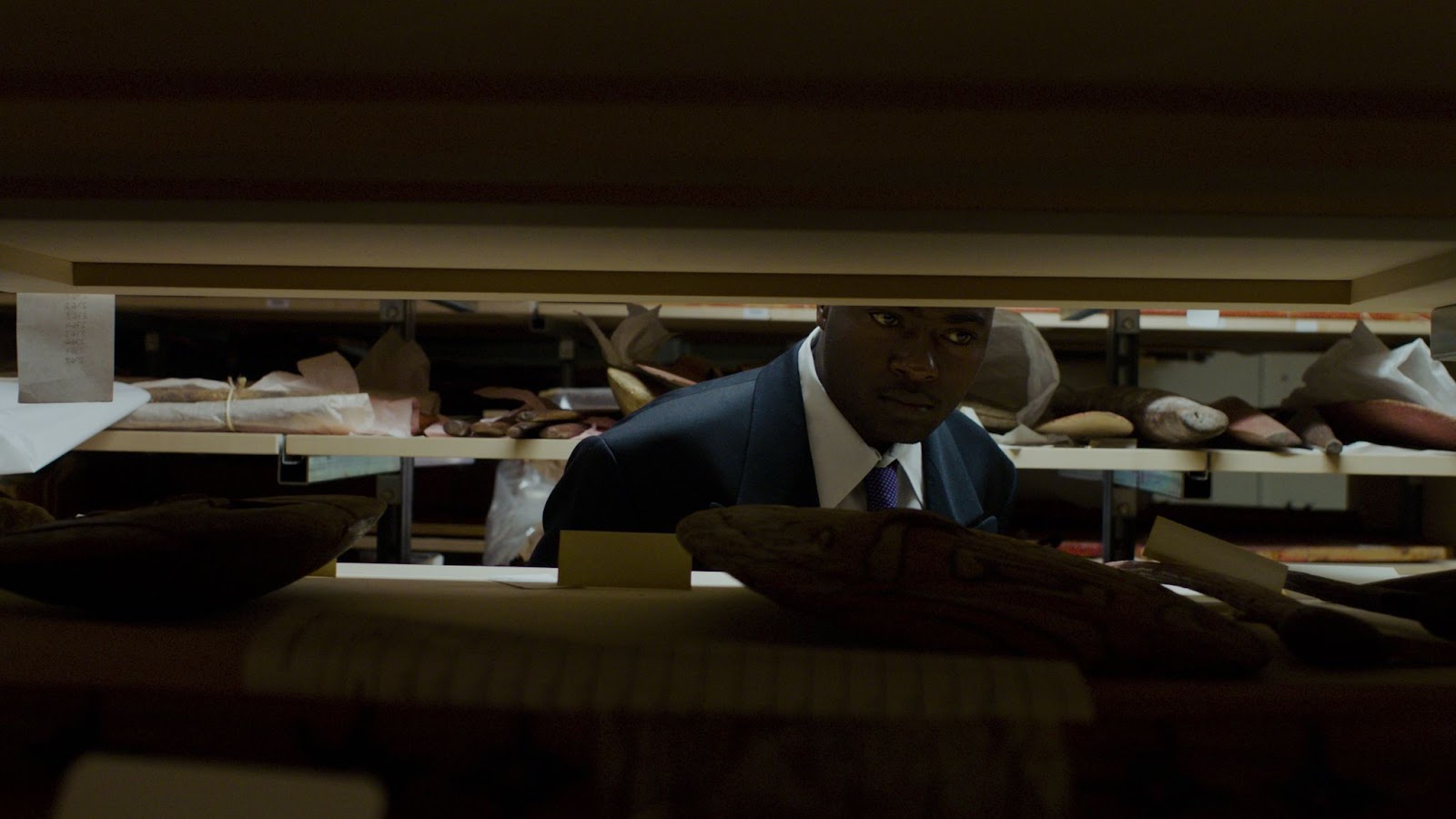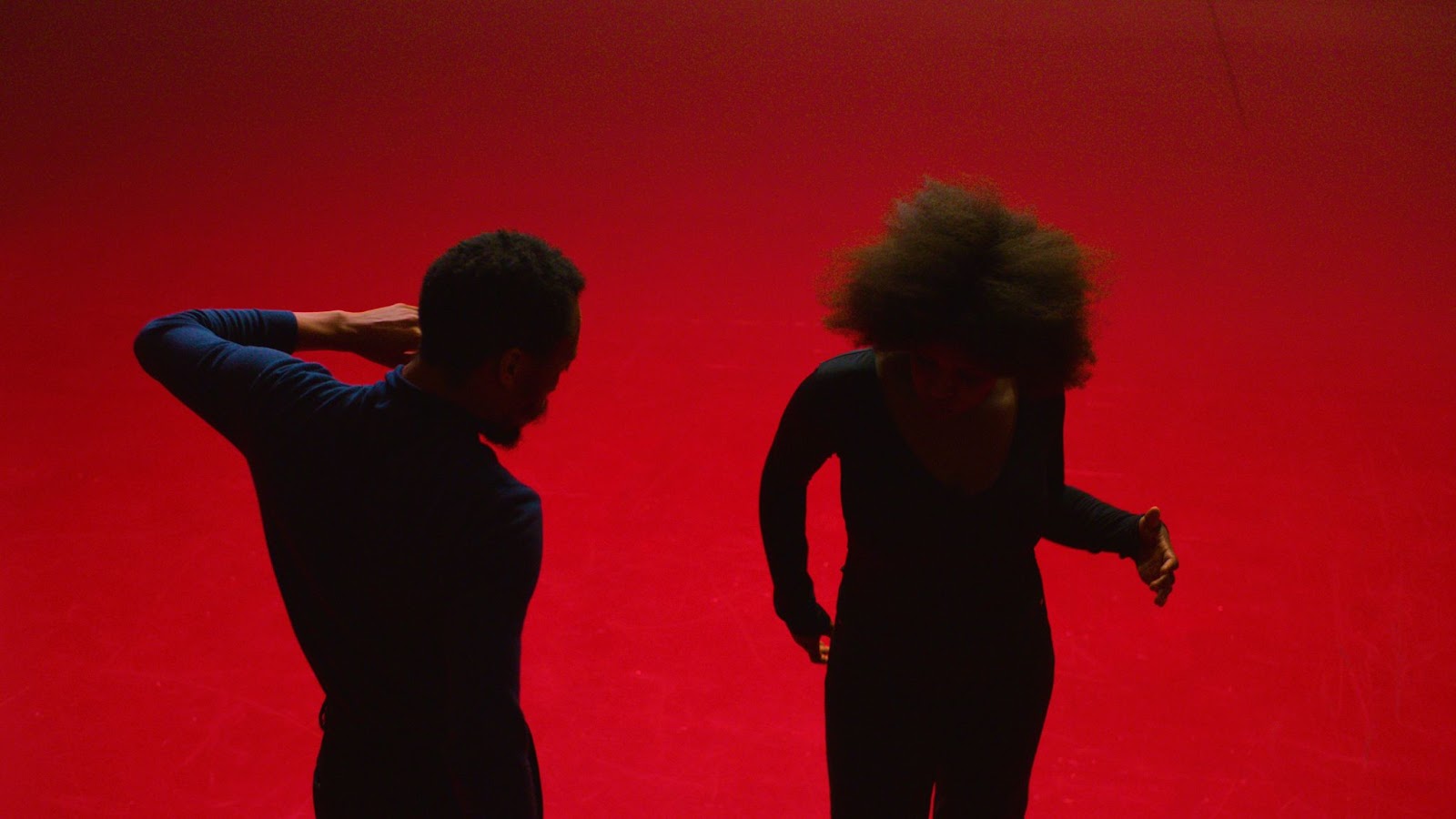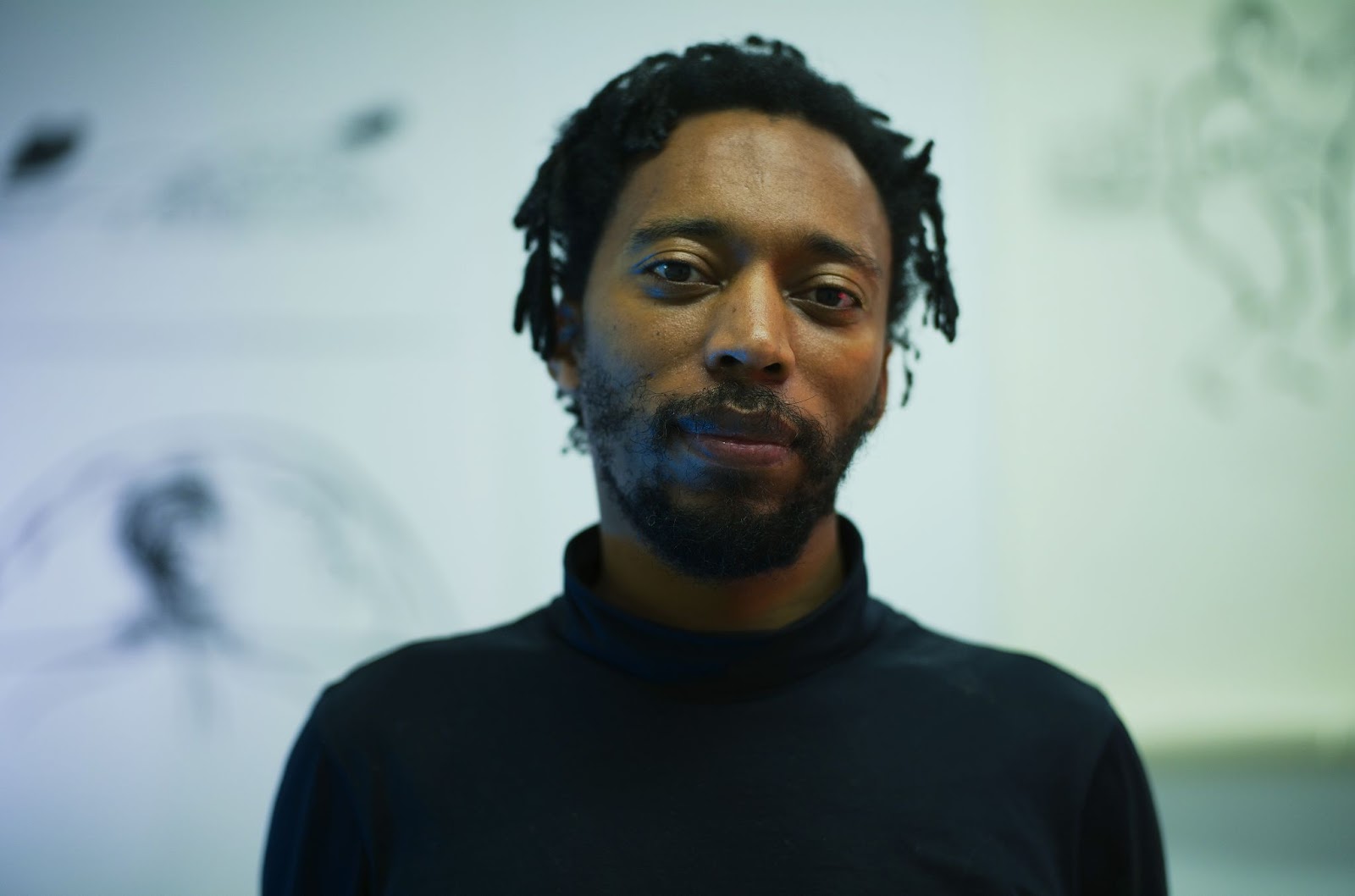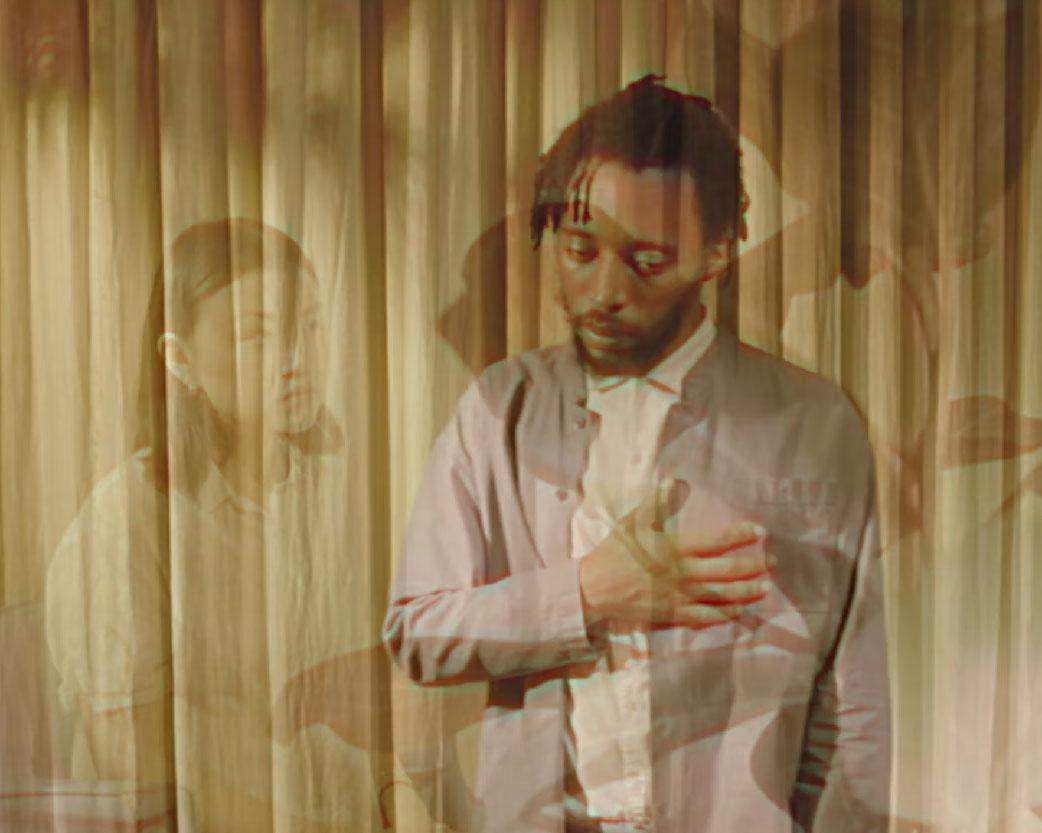Next week, a new exhibition opens to the public at NYU Shanghai’s Institute of Contemporary Arts (ICA). Featuring the work of Rwandan-born artist Christian Nyampeta, École du soir (The Evening School) invites viewers to consider the urgent question “how do we live together?”
While the exhibition centers around contemporary African thought and life practices, artist Christian Nyampeta describes the show as “planetary in scope.” “It's for all of us,” says ICA curator Michelle Yeonho Hyun. “It's this fundamental question of how do we live together with difference and with conflict, or as Nyampeta says, ‘in the wake of radical rupture?’” Just like the night school referenced in the exhibition’s name, École du soir is meant to be engaged with and visited several times, Hyun explains. “It's making a space and creating a time for these activities.”
The exhibition is the fourth part in the ICA’s artistic research series, Another Knowledge Is Possible (2021-24). Exploring knowledge that emerges from language, film and translation, École du soir creates space for dialogue and collaboration, in which community members can come together and share ideas on building a cooperative future and on “thinking Africa.”

Video still from Sometimes It Was Beautiful, created by Christian Nyampeta in 2018. Courtesy the artist. Commissioned by Tensta Konsthall, Stockholm.
In an interview with WIELS, Nyampeta described “the awful linguistic divide between English, French and Portuguese within African studies.” Thinking towards a future for African studies means that the act of translation is one that is both critical and one that must be examined critically. “The divide is obviously not an essence of Africanity but a consequence of its history, marked by colonial domination,” he said.
Nyampeta’s interest in this divide helped inspire the choice of the exhibition name. “I am particularly interested in the word [École du soir] in French used in English," he said, “because this approach helps to lessen the cultural divide that so often exists between French speaking African worlds and those speaking English, despite the sharing of a common destiny.”
Entering the exhibition space, a centrally-placed colorful platform in the shape of a flower is meant to be a centerpiece for the cooperative thinking the exhibition hopes to encourage. The show will feature a series of seminars and workshops all brought together upon this platform.
“The workshops offer meaningful and long lasting encounters with artistic methods that engage with the social environment, cultural invention, and creative vivacity from regions that are not often engaged with in the same way in Shanghai,” said Nyampeta. “But the exhibition and the workshop do not claim to offer discovery of new worlds or the rescue of African worlds by bringing them to China. The spaces, regions, people, stories or histories gathering within the exhibition and workshops stage a space for learning simply by visiting Shanghai.”
In one of the workshops, hosted by the Woodcut Wavement collective, a self-organized inter-Asian woodcut printmaking group, participants will learn about the ways in which printmaking has been used to create social and political change throughout China, and then create their own DIY prints.

Video still from Sometimes It Was Beautiful, created by Christian Nyampeta in 2018. Courtesy the artist. Commissioned by Tensta Konsthall, Stockholm.
Lubumbashi-based artists Feza Kayungu Ramazani and Prodige Tumba Makonga will lead a second workshop on sustainability practices and art. Participants will learn how to make toys from copper wire, a material which is often dumped in neighborhoods surrounding factories in the Democratic Republic of Congo, and is then repurposed by children into imaginative toys. The workshops welcome participants of all ages, though advance registration is required.
The exhibition program also includes two screenings of A Song About Love, a set of music videos as visual poems presented by the African Film Institute, and a series of translation workshops, in which attendees are invited to think collaboratively and critically about the act of translation through movement and everyday experience. For more information and to register to attend, please see the ICA’s spring calendar.

Portrait of Christian Nyampeta. Courtesy the artist.
Film is an important element in the show. In the lower level of the exhibition space, films will be presented alternately on two screens. On the exhibition’s central platform, video monitors display a series of video playlists comprised of still images, video, music, and conversations. These videos represent the spirit of the exhibition. “I think taking ourselves not too seriously, but also trying to take seriously other forms of cultural and knowledge production, is sort of the whole point [of École du soir],” says Hyun.
The exhibition, which will run for three months, offers visitors multiple opportunities to participate in École du Soir in different ways. “It's not a very conventional exhibition, where you see all the works on the walls in one visit,” says Hyun. “My hope is that the visitor would make multiple visits: come, take in a film, read a publication, come back, join a workshop, take in another film, read a bit more.” École du soir will be open from March 7th to June 1st. The exhibition may be viewed from Tuesday to Saturday, from 11:00 a.m. to 6:00 p.m.
OPENING RECEPTION & SCREENING | A Song About Love
Thursday, 7 March, 16:00–19:00 (17:00 screening) | Saturday, 11 May, 14–16:00
To celebrate the opening of École du soir, the African Film Institute presents the Shanghai premiere of A Song About Love, a screening program of music videos. The offering will range from pioneering works in the genre as it relates to the African lifeworlds, traversing through its contemporary forms, and journeying into sonic cultures described from within and beyond Afrofuturism. An additional screening is scheduled on 11 May.
WORKSHOP | Scriptorium
Saturday, 16 March, 15–18:00 | 13 April, 13–15:00 | 1 June, 15–18:00 (finissage)
For École du soir in Shanghai, Christian Nyampeta convenes a 'scriptorium' working group with local collaborators to translate a text by Senegalese philosopher Souleyman Bachir Diagne into Chinese. The scriptorium experiments with 'embodied translation' as an everyday experience that resonates with the lived realities of diverse communities. The scriptorium's translation will be presented at the close of the exhibition in a final session that invites everyone to continue the project of translation together.
WORKSHOP | Provisional Artistic Studies
Saturday, 13 April, 15:30–18:30
Inspired by writer and revolutionary thinker Lu Xun and the early 20th century New Woodcut Movement, Woodcut Wavement collective introduces woodcut printmaking as transformed from a purely aesthetic form to an instrument of social and political intervention. Their workshop invites participants to collective artistic study and exchange of knowledge through discussion and the creation of individual and collaborative woodcut printmaking.
WORKSHOP | African Ingenuity through Sustainability
Saturday, 20 April, 13–16:00
Led by Feza Kayungu Ramazani and Prodige Tumba Makonga, workshop participants will learn from the recycling and upcycling methods of children in Lubumbashi who make their own toys using leftover materials, such as electrical copper wire, found around mining dumps and factories. Copper is a product of metal ore deposits concentrated and mined in Central Africa, in a region extending between northern Zambia and southernmost DRC also known as the Copperbelt.
All events are free and open to the public. All events, except the opening and screening on 7 March, require registration in advance. For more details or to register, please visit the ICA website: ica.shanghai.nyu.edu


